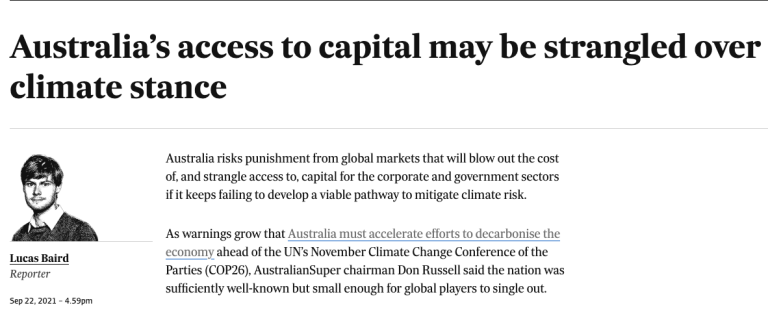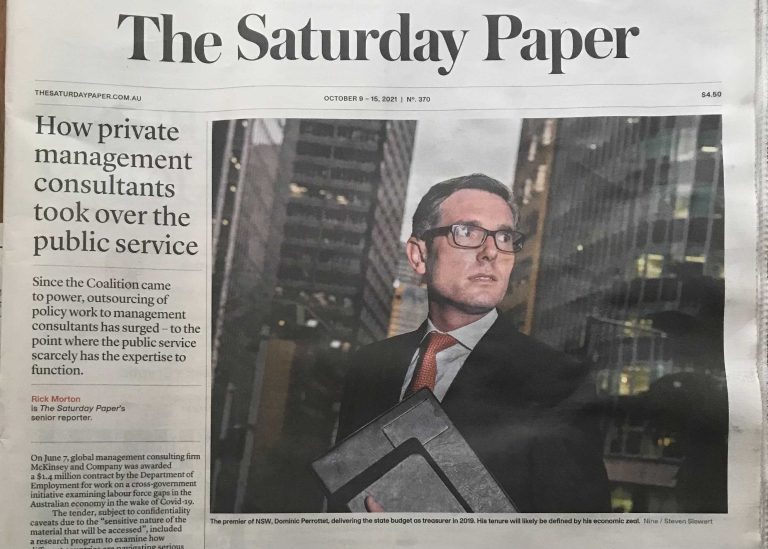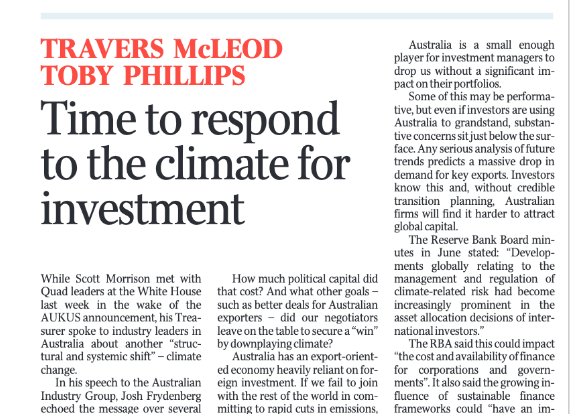Both major parties say the economy is their top priority. That sounds great – but will it work? Can either party really explain their policies to the electorate, asks Ben Eltham in New Matilda.
Ben writes:
For Labor, the economy remains the Government’s potential strong suit: one the few areas of public policy where voters grudgingly admit it is doing a decent job. Labor’s efforts to see the country through the worst of the GFC with only one quarter of negative growth may not win it too many plaudits in the community — Labor in fact still trails the Opposition in poll figures on questions about which party is best at managing the economy — but compared to the unpopularity of issues such as asylum seekers and the carbon tax, the Government at least sees the economy as favourable territory in which to manoeuvre.
For the Coalition, the economy is similarly conducive terrain. The last recession in this country was under Paul Keating in the early 1990s. Since then the country has enjoyed a long boom that coincided with most of John Howard’s reign. We can never be sure exactly why, but perhaps this is the reason the conservative parties enjoy a natural advantage with voters, who seem automatically prepared to believe that the Liberal Party in particular is a better manager of the economy that spendthrift Labor.
Labor has been dealt a rather more tricky hand of cards than the Coalition thanks to external economic events. Sure, the Coalition navigated the Asian financial crisis of 1998 and the bursting of the dotcom bubble in 2011, but neither can really compare to the worst economic downturn in the northern hemisphere since the 1930s. That’s what confronted Labor in September 2008, only 10 months after John Howard was thrown out of office. The turbulent and unsettling years following 2008 have seemed very different to the sunny years of the mid-2000s.
The actions that the Rudd government took in response to the GFC in late 2008 and early 2009 form the backdrop to the current economic debate. Simply put, that response was a triumph of pragmatic economic policy-making. Australia went hard and early with fiscal stimulus accompanied by a big drop in interest rates. This pumped money into the economy at a time when consumers could have been frightened into putting away their credit cards. It also helped strugglers in the mortgage belt with a windfall reduction in their fortnightly mortgage repayments. Despite some significant corporate failures from over-leveraged companies like Centro and Babcock and Brown, Australia didn’t see a massive wave of corporate insolvency, and the fiscal stimulus took up the slack of falling private investment. As a result, unlike most of the western world, Australian aggregate demand therefore held up, and the country stayed out of recession.
Read more from Ben Eltham in New Matilda here.
 Change can happen faster than you think – help us seize the moment and point to the alternatives. Add your voice to ours!
Change can happen faster than you think – help us seize the moment and point to the alternatives. Add your voice to ours!



